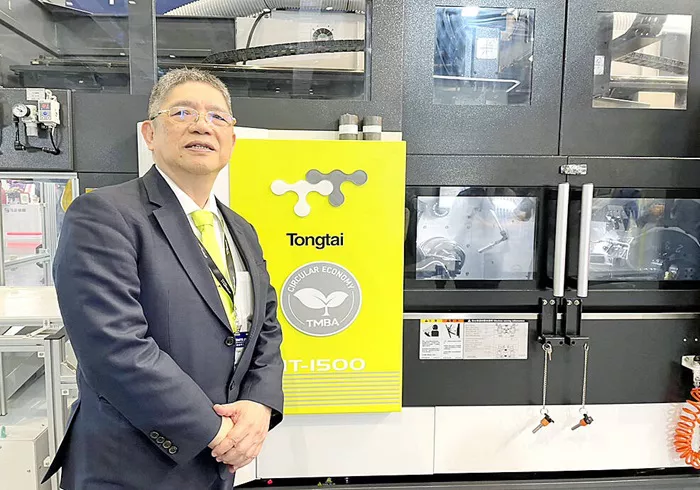Taiwanese manufacturers are well-positioned to become a critical part of the global humanoid robot supply chain, according to Yen Jui-hsiung, chairman of Tongtai Machine and Tool Co. Speaking on Tuesday, Yen highlighted Taiwan’s expertise in producing essential components that enable humanoid robots to move, such as harmonic drives and planetary gearboxes.
This capability, Yen said, could help Taiwanese companies integrate into the U.S. supply chain. His comments came a day after Nvidia Corp cofounder and CEO Jensen Huang emphasized the collaborative efforts between Nvidia and Taiwan Semiconductor Manufacturing Co (TSMC) to drive innovation in robotics and autonomous vehicles.
However, Yen noted that the high cost of humanoid robots remains a significant barrier to their widespread adoption. He explained that the current unit cost is so high that it effectively adds “an extra zero” to the target price. Despite this challenge, Yen sees an opportunity for Taiwanese manufacturers to reduce costs by leveraging their expertise in producing key components.
“Reducing the cost of humanoid robots presents an opportunity for Taiwanese key component manufacturers to play a crucial role,” he said.
Yen’s remarks align with the growing optimism around robotics development. Huang, who recently concluded a three-day visit to Taipei, hosted a luncheon for top executives from Nvidia’s supply chain partners in Taiwan. Attendees included TSMC chairman C.C. Wei, Hon Hai Precision Industry Co chairman Young Liu, and Quanta Computer Inc chairman Barry Lam, among other industry leaders.
Huang has been vocal about Nvidia’s investments in robotics, particularly in three key areas: Agent AI, humanoid robots, and autonomous vehicles. At the Consumer Electronics Show (CES) in Las Vegas earlier this month, he unveiled the next-generation Thor Blackwell Robotics Processor, designed for use in automated handling machines and humanoid robots.
Meanwhile, Tesla CEO Elon Musk announced ambitious plans to produce 50,000 to 100,000 Optimus humanoid robots by next year, with a goal of reaching at least 500,000 units annually by 2027.
As the demand for humanoid robots grows, Taiwan’s manufacturing prowess in critical components could position the island as a vital player in this emerging industry.

